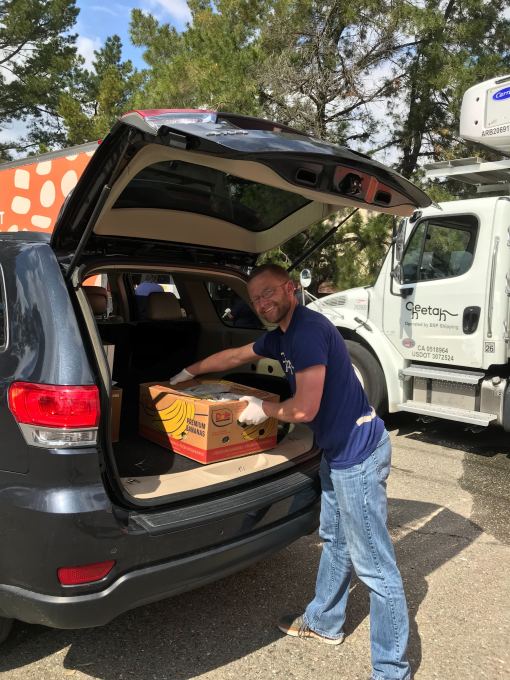A lot of restaurants have shuttered in the wake of stay-at-home guidance and government orders for non-essential businesses to close down, so a startup called Cheetah that provided a wholesale delivery service for them pivoted to selling to consumers, and now it’s raised a round of funding, both to expand its business and to help it stay the course through the novel coronavirus pandemic.
Today, the San Francisco startup is announcing that it has closed a Series B of $36 million led by Eclipse Ventures, with ICONIQ Capital, Hanaco Ventures, and Floodgate Fund also participating. The funding brings the total raised by Cheetah to $66 million, the company said. PitchBook puts its valuation at its last round at $180 million; we’ve asked for the latest figure and will update as and when we hear more.
Cheetah’s pivot comes at a key moment for the company and points to how there seem to be, generally speaking, two very different narratives underpinning the world of startups at the moment.
On one hand, some companies are seeing a huge boost to their business, when their existing business model perfectly addresses a current need. On the other, companies that are hard pressed to fit any current need are feeling the pinch.
Cheetah is an example of how a company in the latter category has used its resources and pivoted to becoming a business in the former.
 Its wholesale delivery business for restaurants — which had some 3,000 customers before COVID-19, has largely (but not completely) dried up. So it’s now set up a new service called Cheetah For Me, where it offers bakery items to beverages, dairy, meat, poultry, seafood, fresh produce, condiments, snacks and cleaning supplies to individuals to buy, and distributes those orders via a selection of pick-up points.
Its wholesale delivery business for restaurants — which had some 3,000 customers before COVID-19, has largely (but not completely) dried up. So it’s now set up a new service called Cheetah For Me, where it offers bakery items to beverages, dairy, meat, poultry, seafood, fresh produce, condiments, snacks and cleaning supplies to individuals to buy, and distributes those orders via a selection of pick-up points.
At a time when people are unable to get delivery slots with Amazon or are avoiding physical grocery stores, Cheetah’s offering becomes another choice alongside Instacart and other food delivery services.
“The positive feedback from the community has been overwhelming,” said Na’ama Moran, CEO at Cheetah who cofounded the company with Christopher Elliott, Alon Har-Tal and Vincent Matranga, in a statement.“This funding allows Cheetah to build on our strong foundation and expand essential services directly to the consumer. Now, we can provide even more people with the food and supplies they need in a safe and cost-effective way, throughout this crisis and beyond. Our purpose has always been to help independent restaurants thrive. Now we are helping communities thrive.”
Currently its Cheetah For Me service is live in the Bay Area.
Cheetah is not the only startup that caters to the restaurant trade that is now opening up a new front offering direct-to-consumer sales.
Choco in New York, which helps restaurants source their supplies online to save cooks and buyers time shopping in person, also started a new service targeting consumers. In its case, it’s teaming up with its restaurant customers to resell vegetables, meat and other ingredients.
(Choco doesn’t take a cut itself and says it’s doing this to help the restaurants continue staying in business even when they cannot operate their physical venues and kitchens.)
Choco earlier this month also raised some money: $30.2 million at a $250 million valuation.
Founders have said that’s a challenge right now to raise money, not just because of business slowing down. They cannot see investors in person, and investors themselves are wary and hesitant because they don’t know what the next months will hold.
In that regard, some of the factors are emerging that are critical in sealing the deal. They include showing that the startup is resourceful and useful; and that the startup is based on a good enough idea, executed well, making it worth funding to help it stick around.
It seems that Cheetah ticked all of these boxes.
“This pandemic has shed light on how technology can be used to quickly adapt core services within the food industry like delivery, fulfillment, and supply chains,” said Lior Susan, Founder and Managing Partner at Eclipse, in a statement. “Cheetah’s team has demonstrated agility and ingenuity on behalf of their customers, and the resiliency of building a technology-centric operation. The company’s vertical integration and technology stack have enabled them to accommodate changing buyer behavior as food supply chains shifted from a focus on commercial operations to consumer homes.”
“Cheetah’s existing technology infrastructure has enabled them to quickly expand their offering to new customers,” added Sarah Kim, Head of Private Equity Funds and Co-Investments at ICONIQ Capital, in a separate statement. “Cheetah has demonstrated that it has the vision to uncover new opportunities and the ability to rapidly execute on programs that benefit multiple communities. We look forward to working with this talented team as they pave the way toward a better food supply chain.”
